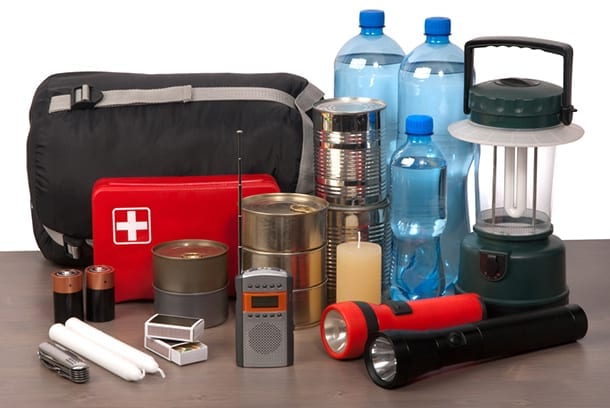
10 things you should always have in your car
One in three motorists are likely to experience a breakdown or otherwise need assistance with their vehicle every year. Common faults include a flat tyre, fuel problems, starter motor issues and alternator faults. These problems can happen anywhere at any time and not always within reception or easy access to home. These top tips from 360 Finance will help you prevent, fix, or get through these situations and are must haves in your car.
1. First Aid Kit
It doesn’t have to be a serious car accident for a first aid kit to come in handy; even a trip to the local park can result in a sprained ankle or ant bite. If your vehicle is used by you or others for business purposes it is actually a legal requirement to have first aid equipment accessible. It is possible to purchase pre-packed first aid kits from chemists, first aid retailers and training services however it is possible to make your own. Choose a sturdy container or bag that has many clear compartments such as a fishing tackle box or craft bag.
A basic kit should include
- heavy and light crepe bandages of various sizes
- triangular bandage
- instant cold pack
- scissors
- alcohol swabs
- Band-Aids of different sizes
- gauze
- gloves
- two large wound dressings
- 2.5cm adhesive tape
- tweezers
- Resuscitation mask
The first aid kit should be stored in a place in the car that is easy to get to in an emergency such as the glove box or boot. It is not recommended to store the first aid kit under a seat or
in direct sunlight.
2. Torch
A torch is high up on the list of car essentials. A good torch will give you enough light to change a tyre in the dark or take a look under the bonnet. It can also be used for signalling other drivers or to help roadside assistance or tow trucks find you in the dark. It is a good idea to store your torch in a zip lock bag with the batteries separate so that you know it will always work when you need it.
3. Mobile phone charger
For everyday use and emergencies, a mobile phone charger permanently in the car means that you can be assured that you will never be caught out with a flat battery. Some drivers keep an old mobile and charger in their car emergency kit as even without a SIM, the phone is able to dial for emergency assistance.
4. Tyre pressure gauge
Ensuring that the pressure in your tyres is right is essential for reducing unnecessary wear on you tyres and increasing the safety and handling of your car. Having the tyre pressure gauge handy will make it easier for you to regularly check the pressure in your tyres. The correct pressure will be listed in the owner’s manual and usually in the door sill. For more information about the importance of having safe tyres, read our Car Safety – Tyres post (LINK).
5. Spare tyre or Tyre sealant
Most cars will have a spare tyre stored in the boot with a jack and basic tool kit. It is a good idea to check these once or twice a year to make sure everything is still in good condition. Another option is to store tyre sealant with the spare. Tyre sealant comes in a can for around $15 – $20 and is a temporary repair solution that can be used to seal a minor puncture for long enough to get the car home or to a garage. Using tyre sealant is usually easier and quicker than changing the tyre however it is not recommended to use on vehicles that have inbuilt pressure sensors.
6. Owner’s manual
Usually the owner’s manual will be stored somewhere in your car. Most likely it will be in the glove box and provides useful information about many minor repairs that can be done without assistance. If you’ve recently bought a used car, it is worthwhile double checking that the manual is available and the right one for your vehicle.
7. Blanket
There are many uses for a blanket! A blanket can help stay warm in an emergency but is also useful for chilly trips out on a picnic, football games or if you happen to get wet unexpectedly. It’s handy to throw across the back seat if the dog is travelling in the car too or to lay on under the car if changing a flat tyre. In some cases a blanket can be used to provide extra traction if the vehicle is bogged in mud or snow.
8. Non-perishable food and water
Having access to food and water can be really useful if you’re stuck somewhere far out of town. It is best to store foods that are not heat sensitive and have a longer expiration date such as
muesli bars or baked beans. The water should be stored in BPA free bottles or glass if possible and replaced every few months. Storing glass bottles in the car can be difficult however prevent breakage by using a stubby cooler or similar.
9. Jumper leads
Jumper leads will rarely go unused either for your own car or to help others. You can pick up a pair for as little as $20 and are much cheaper and easier than calling out a tow truck simply for a flat battery.
10. Extra cash
Whether you need to make an unplanned stop for petrol or use a pay phone to get assistance, having spare cash can be really useful. Around $10 in coins should be enough to cover you in most circumstances. Avoid the temptation to spend this by keeping it in a zip lock bag or purse in the boot. Try to replace it as soon as possible if you happen to need it.
Most of these items are inexpensive and can be easily stored together in a small box in the boot. Having these things close on hand will ensure you’re well prepared for any situation.

